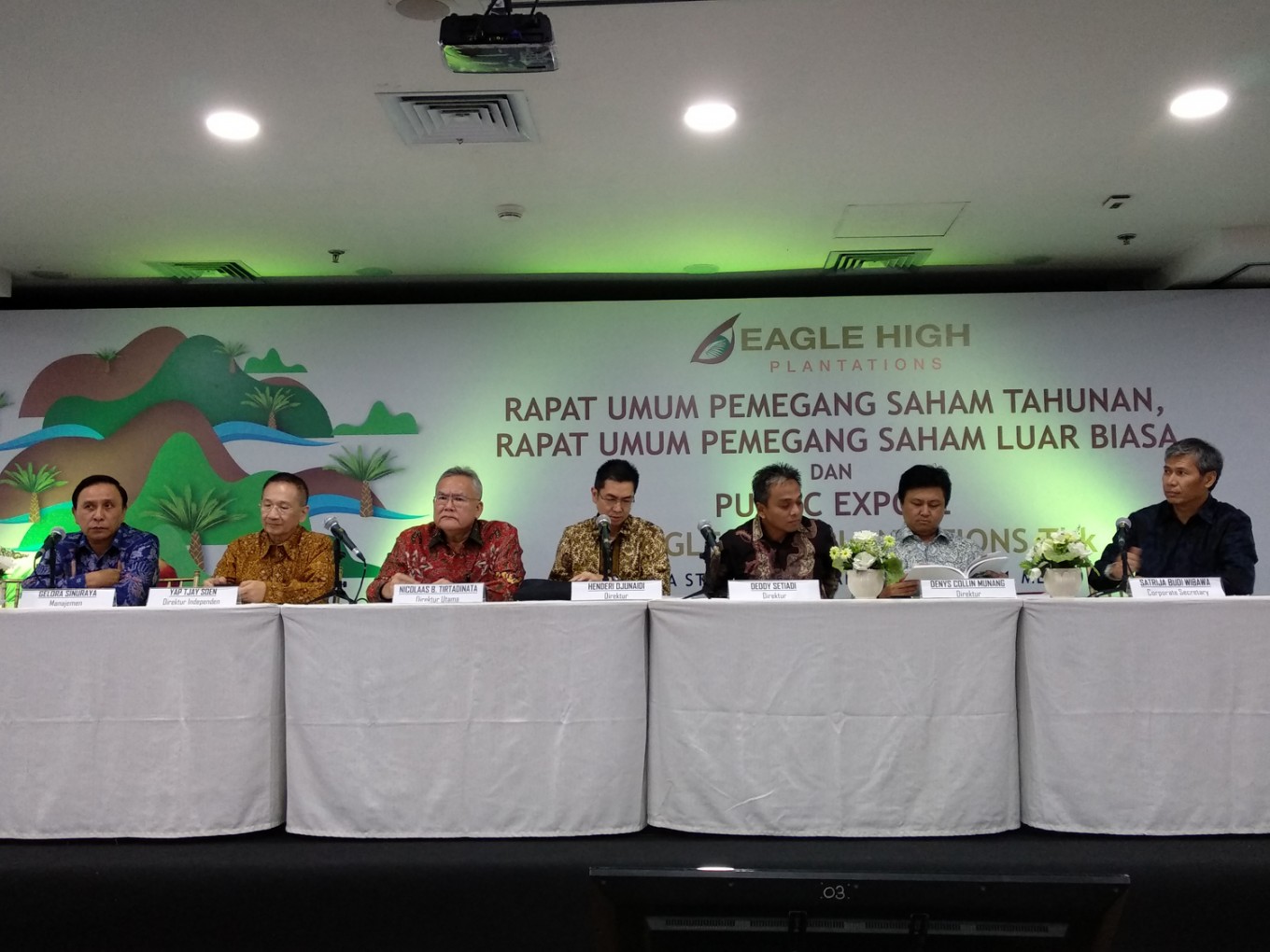Eagle High Plantations optimistic on profit in 2018
Change Size
 PT Eagle High Plantations chief operating officer Gelora Sinuraya (left), corporate governance director Yap Tjay Soen (second left), president director Nicolaas Bernadus Tirtadinata (third left), finance and accounting director Henderi Djunaidi (center), corporate affairs director Deddy Setiadi (third right), sustainability and investor relations director Denys Collin Munang (second right), corporate secretary Satrija Budi Wibawa (right) speak during a press briefing in Jakarta on Thursday (JP/Anton Hermansyah)
PT Eagle High Plantations chief operating officer Gelora Sinuraya (left), corporate governance director Yap Tjay Soen (second left), president director Nicolaas Bernadus Tirtadinata (third left), finance and accounting director Henderi Djunaidi (center), corporate affairs director Deddy Setiadi (third right), sustainability and investor relations director Denys Collin Munang (second right), corporate secretary Satrija Budi Wibawa (right) speak during a press briefing in Jakarta on Thursday (JP/Anton Hermansyah)
C
onglomerate Rajawali Corp.’s plantation company, PT Eagle High Plantations, is optimistic about booking profit in 2018, as its palm trees have reached productive age.
Eagle High Plantations finance and accounting director Henderi Djunaidi said on Thursday that for the past three months, the company had seen an upward trend in production. In March, it produced 100,000 tons of fresh fruit bunch (FFB), followed by 130,000 tons and 160,000 tons in April and May, respectively.
"It is still difficult to forecast how much profit we can get at the end of this year, but the increasing production is a good proxy," he said during a press briefing in Jakarta.
He hoped that the increasing production could cover first quarter losses.
In the first quarter, the company booked a net loss of Rp 83.45 billion (US$6.01 million), five-fold compared to Rp 16.43 billion in the same period last year. The company's revenue decreased 31.64 percent year-on-year (yoy) to Rp 578.81 billion from Rp 846.72 billion during the first quarter of 2017.
Eagle High head of investor relations and sustainability Sebastian Sharp said most of the company's trees would be nine years of age in 2018, the prime age for palm trees. Moreover, the wet rainy season, which Indonesia experienced from 2015 to 2017, would support production until 2020.
"If the rainfall rate was good during the last three years, production would be good until 2020 and at that time our trees will be 12 years old, at the peak of productive age," he said. (dwa)









